 W
WThe Independence Day of Abkhazia also known among Abkhazians as Liberation Day or Victory Day is the main state holiday in the partially recognized Republic of Abkhazia. It celebrates the end of the War in Abkhazia (1992–1993) and the declaration of independence. This date is celebrated on September 30.
 W
WAfghan Independence Day is celebrated as a national holiday in Afghanistan on 19 August to commemorate the Anglo-Afghan Treaty of 1919 and relinquishment from protected state status. The treaty granted a complete neutral relation between Afghanistan and Britain. Afghanistan had become a British protectorate after it was defeated in the Second Anglo-Afghan War.
 W
WIndependence Day, observed annually on July 5 every year, is a National Holiday in Algeria commemorating Algeria's independence from France on July 5, 1962.
 W
WThe Independence Day of Armenia is the main state holiday in Armenia. This date is celebrated on September 21.
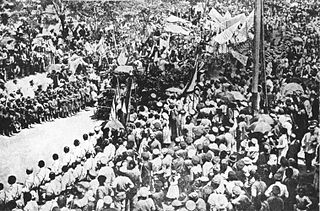 W
WRepublic Day is a national holiday in Armenia marking the anniversary of the First Armenian Republic in 1918. It is commonly celebrated with fireworks, concerts, torchlight marches, parades, and parties. It is considered to be the national day of Armenia.
 W
WThe Independence Day of Azerbaijan is the main state holiday in Azerbaijan. It is celebrated annually on October 18. On this day in 1991, the Supreme Soviet of Azerbaijan adopted a Constitutional Act on the Declaration of Independence of Azerbaijan. The declaration was confirmed by a referendum in December 1991.
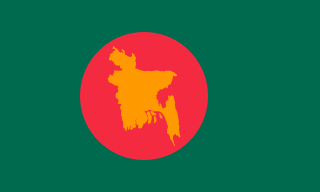 W
WThe Independence Day of Bangladesh, taking place on 26 March, is a national holiday. It commemorates the country's declaration of independence from Pakistan in the early hours of 26 March 1971 by the leader of the Nation Sheikh Mujibur Rahman.
 W
WIndependence Day of the Republic of Belarus, also known as Republic Day or Liberation Day is a public holiday, the independence day of Belarus and is celebrated each year on 3 July. Independence Day is a non-working day.
 W
WIndependence Day is a public holiday observed in the Federation of Bosnia and Herzegovina held on 1 March to celebrate the independence of Bosnia and Herzegovina from the Socialist Federal Republic of Yugoslavia in 1992. It is not observed in Republika Srpska, the other political entity of Bosnia and Herzegovina.
 W
WThe Independence Day of Brazil, commonly called Sete de Setembro, is a national holiday observed in Brazil on 7 September of every year. The date celebrates Brazil's Declaration of Independence from the United Kingdom of Portugal, Brazil and the Algarves on 7 September 1822.
 W
WThe celebration of the Greek Revolution of 1821, less commonly known as Independence Day, takes place in Greece, Cyprus and Greek diaspora centers on 25 March every year, coinciding with the Feast of the Annunciation. The day is a public holiday in Greece and Cyprus. Usually celebrations include parades and other celebratory events on the same day or its eve.
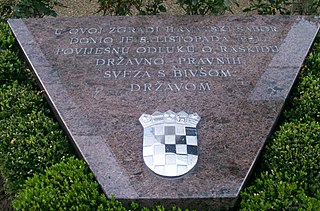 W
WCroatian Independence Day is a memorial day in Croatia, marked yearly on 25 June that celebrates the decision of the Croatian Parliament to declare the independence of Croatia from the Socialist Federal Republic of Yugoslavia.
 W
WDefender of the Motherland Day also known as Uzbek Army Day is a holiday observed in Uzbekistan. It is celebrated on 14 January. It is the official professional holiday of the Uzbek Armed Forces.
 W
WIndependence Day, observed annually on 27 June, is a national holiday in Djibouti. It mark the territory's declaration of independence from France. An independence referendum was held in the French Territory of the Afars and the Issas on 8 May 1977 alongside elections for a Constituent Assembly. Unlike the rigged 1958 and 1967 plebiscites, this time the territory became independent as Djibouti on 27 June 1977. Independence Day is associated with military parades, fireworks, concerts, fairs, and political speeches and ceremonies, in addition to various other public and private events celebrating the history and culture of Djibouti.
 W
WThe Independence Day of Eritrea is one of the most important public holidays in the country. It is observed on May 24 every year. On this day in 1991, Eritrean People's Liberation Front forces moved into the capital Asmara, reinstating independence, following a 30-year war against the Ethiopian military regime. Eritrea Independence Day is a national holiday, with workers given a day off.
 W
WIndependence Day is a national holiday in Estonia marking the anniversary of the Estonian Declaration of Independence in 1918. It is commonly celebrated with concerts, parades and parties. It is the national day of Estonia.
 W
WFinland's Independence Day is a national public holiday, and a flag day, held on 6 December to celebrate Finland's declaration of independence from Russia in 1917.
 W
WFlag Day, or Independence Day, is celebrated every 28 November as a holiday in Albania, Kosovo, and the Albanian diaspora. It refers to the Albanian Declaration of Independence on 28 November 1912 and the rise of the Albanian flag in Vlora, coinciding with the day in which Skanderbeg raised the same flag in Krujë, on 28 November 1443.
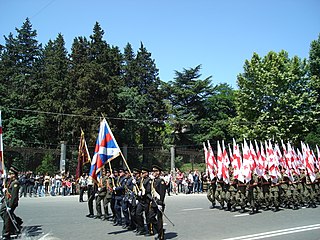 W
WIndependence Day is an annual public holiday in Georgia observed on 26 May. It commemorates the 26 May 1918 adoption of the Act of Independence, which established the Democratic Republic of Georgia in the aftermath of the Russian Revolution of 1917. It is the national day of Georgia. Independence Day is associated with military parades, fireworks, concerts, fairs, and political speeches and ceremonies, in addition to various other public and private events celebrating the history and culture of Georgia.
 W
WThe Independence Day of Ghana is a national holiday celebrated yearly. This day is an official state holiday for the citizens of Ghana both within and in the diaspora to honour and celebrate the Heroes of Ghana who led the country to attain its independence. The Independence Day is celebrated on March 6 every year. Independence Day is also remembrance of the day that marks the declaration of Ghanaian independence from the British colonial rule. The first Prime Minister of Ghana; Kwame Nkrumah became the Head of Government from 1957 to 1960. On the 6 March 1957 Kwame Nkrumah declared to the people of Ghana about their freedom, he added that, "the African People are capable of managing their own affairs and Ghana our beloved country is free forever." Ghana was the first country in sub-Saharan Africa to achieve its independence from European colonial rule. Many Ghanaian who have had the chance to lead the country as Presidents have commemorated the occasion of Ghana Independence Day and have declared the day a public holiday for a celebration. Granting the day as a national holiday is well recognized such that, if the 6th March of a year fell on a weekend of the Independence Day celebration, the working day that follows which is a Monday will be granted and observed as a holiday by the whole nation. Many Presidents from other African countries and Europe have been invited to Ghana to join in the celebration either as Guest Speakers or Invited Guests since the reign of former President Kwame Nkrumah till now.
 W
WHawaiian Independence Day was a former national holiday celebrated annually on November 28 during the Hawaiian Kingdom, which commemorated the signing of Anglo-Franco Proclamation of 1843, the official diplomatic recognition of the independence and sovereignty of the kingdom by Great Britain and France. It is still celebrated today by proponents of the Hawaiian sovereignty movement.
 W
WIndependence Day is celebrated annually on 15 August as a national holiday in India commemorating the nation's independence from the United Kingdom on 15 August 1947, the day when the provisions of the 1947 Indian Independence Act, which transferred legislative sovereignty to the Indian Constituent Assembly, came into effect. India retained King George VI as head of state until its transition to a full republic, when the nation adopted the Constitution of India on 26 January 1950 and replaced the dominion prefix, Dominion of India, with the enactment of the sovereign law Constitution of India. India attained independence following the Independence Movement noted for largely non-violent resistance and civil disobedience.
 W
WIndependence Day is a national holiday in Indonesia commemorating the anniversary of the Indonesia's Proclamation of Independence on 17 August 1945. It was made a national holiday by then-President Sukarno in 1953.
 W
WIndependence Day is the national day of Israel, commemorating the Israeli Declaration of Independence in 1948. The day is marked by official and unofficial ceremonies and observances.
 W
WThe Independence Day of Jamaica is a national holiday celebrated in Jamaica. Being that it commemorates such an event, it is one of the more senior public holidays celebrated in Jamaica.
 W
WIndependence Day is a national holiday that is celebrated in Jordan on May 25 which commemorates the Jordanian Parliament's ratification of the Treaty of London on 25 May 1946. The act represented the end of the Emirate of Transjordan as a British protectorate and the declaration of the Hashemite Kingdom of Jordan.
 W
WIndependence Day of Kazakhstan is the main national holiday in the Republic of Kazakhstan, celebrated annually on 16 December.
 W
WIndependence Day, is the official independence day of Federation of Malaya. It commemorates the Malayan Declaration of Independence of 31 August 1957, and is defined in Article 160 of the Constitution of Malaysia. The day is marked by official and unofficial ceremonies and observances.
 W
WAn independence day is an annual event commemorating the anniversary of a nation's independence or statehood, usually after ceasing to be a group or part of another nation or state, or more rarely after the end of a military occupation. Many countries commemorate their independence from a colonial empire. American political commentator Walter Russell Mead notes that, "World-wide, British Leaving Day is never out of season."
 W
WJamhuri Day is a national holiday in Kenya, celebrated on 12 December each year. Jamhuri is the Swahili word for "republic" and the holiday is meant to officially mark the date when Kenya became a republic on 12 December 1964, one year and six months after gaining internal self-rule on 1 June 1963 from the United Kingdom.
 W
WKosovo Independence Day is a national independence day celebrated in Kosovo every 17 February.
 W
WThe Independence Day of Kyrgyzstan is the main state holiday in Kyrgyzstan. It is celebrated in Kyrgyzstan annually on August 31, the anniversary of its declaration of independence in 1991.
 W
WDay of the Restoration of Latvian Independence is a Latvian national holiday and event, being celebrated annually on 4 May. It marks, like the other Baltic republics, the restoration of the Latvian Republic by official declaration by the Supreme Soviet of the Latvian SSR on May 4, 1990. The country would not however, have complete independence, only achieving full independence from the Soviet Union on December 25, 1991.
 W
WProclamation Day of the Republic of Latvia is celebrated annually on 18 November. It marks the anniversary of the Proclamation of Independence of Latvia by the People's Council of Latvia in 1918.
 W
WLebanese Independence Day is the national day of Lebanon, celebrated on 22 November in commemoration of the end of the French Mandate over Lebanon in 1943, after 23 years of Mandate rule.
 W
WIndependence Day in North Macedonia is celebrated on 8 September. It has been a national holiday since 1991, when a referendum for Independence took place. Then SR Macedonia gained its independence from Yugoslavia, where it was a federal state, and became a sovereign parliamentary democracy.
 W
WIndependence Day is one of the five national holidays in Malta. It celebrates the day the country gained independence from the United Kingdom on 21 September 1964. Throughout its existence, Malta had a long and complex history which resulted in the island being ruled by a plethora of foreign rulers. Such rulers include the likes of the “Phoenicians, Romans, Greeks, Arabs, Normans, Sicilians, Swabians, Aragonese, Hospitallers, French, and British”. Malta's final ruler, Britain, granted Malta self-governance after Malta's brave resistance to the Axis powers and loyalty to Britain during World War II, which did allow for the movement for independence to grow more in popularity. Malta attained independence from the British Empire and joined the Commonwealth of Nations in 1964 and declared itself a republic a decade later, known as Republic Day.
 W
WThe Cry of Dolores occurred in Dolores, Mexico, on 16 September 1810, when Roman Catholic priest Miguel Hidalgo y Costilla rang his church bell and gave the call to arms that triggered the Mexican War of Independence.
 W
WIndependence Day is the national day of Moldova commemorating the adoption of the Declaration of Independence from the Soviet Union on 27 August 1991.
 W
WIndependence Day is a national holiday observed annually in Myanmar every 4 January. The date celebrates Myanmar's Declaration of Independence from the British rule on 4 January 1948.
 W
WIndependence Day is an official national holiday in Nigeria, celebrated on the first of October. It marks Nigeria's proclamation of independence from British rule on 1 October 1960.
 W
WIndependence Day, observed annually on 14 August, is a national holiday in Pakistan. It commemorates the day when Pakistan achieved independence and was declared a sovereign state following the end of the British Raj in 1947. Pakistan came into existence as a result of the Pakistan Movement, which aimed for the creation of an independent Muslim state in the north-western regions of British India via partition. The movement was led by the All-India Muslim League under the leadership of Muhammad Ali Jinnah. The event was brought forth by the Indian Independence Act 1947 under which the British Raj gave independence to the Dominion of Pakistan which comprised West Pakistan and East Pakistan. In the Islamic calendar, the day of independence coincided with Ramadan 27, the eve of which, being Laylat al-Qadr, is regarded as sacred by Muslims. The main Independence Day ceremony takes place in Islamabad, where the national flag is hoisted at the Presidential and Parliament buildings. It is followed by the national anthem and live televised speeches by leaders. Usual celebratory events and festivities for the day include flag-raising ceremonies, parades, cultural events, and the playing of patriotic songs. A number of award ceremonies are often held on this day, and Pakistanis hoist the national flag atop their homes or display it prominently on their vehicles and attire.
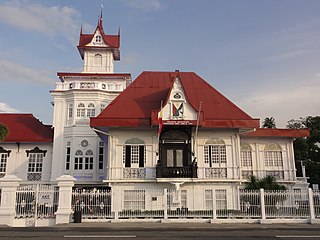 W
WIndependence Day is an annual national holiday in the Philippines observed on June 12, commemorating the declaration of Philippine independence from Spain in 1898.
 W
WNational Independence Day is a national day in Poland celebrated on 11 November to commemorate the anniversary of the restoration of Poland's sovereignty as the Second Polish Republic in 1918 from the German, Austro-Hungarian and Russian Empires. Following the partitions in the late 18th century, Poland ceased to exist for 123 years until the end of World War I, when the destruction of the neighbouring powers allowed the country to reemerge. It is a non-working day in Poland.
 W
WThe Independence Day of Somalia is a national holiday observed annually in Somalia on July 1. The date celebrates the unification of the Trust Territory of Somalia and the State of Somaliland on July 1, 1960, which formed the Somali Republic. A government was subsequently formed by Abdullahi Issa and Muhammad Haji Ibrahim Egal and other members of the trusteeship and protectorate governments, with speaker of the SOMALIA ACT OF UNION Abdulcadir Muhammed Aden as President of the Somali National Assembly, Aden Abdullah Osman Daar as President of the Somali Republic, On 20 July 1961 and through a popular referendum, the people of Somalia ratified a new constitution, which was first drafted in 1960.
 W
WThe Independence Day or Republic Day is the main state holiday in the partially recognized Republic of South Ossetia. This date is celebrated on September 20. It commemorates South Ossetia's declaration of independence from the Georgian SSR in 1990, and the country's recognition as a sovereign state by Russia in 2008.
 W
WEvacuation Day, is Syria's national day commemorating the evacuation of the last French soldier and Syria's proclamation of full independence and the end of the French mandate of Syria on 17 April 1946.
 W
WThe Independence Day of Tajikistan, officially known as the Day of State Independence of the Republic of Tajikistan, is the main national holiday of the Republic of Tajikistan.
 W
WThe Republic Day of Transnistria also known in the West as Independence Day or National Day is the main state holiday in the partially recognized republic of Transnistria. This date is celebrated annually on September 2.
 W
WIndependence Day of Turkmenistan is the main state holiday in Turkmenistan. This date is celebrated in Turkmenistan annually on September 27.
 W
WIndependence Day of Ukraine is the main state holiday in modern Ukraine, celebrated on 24 August in commemoration of the Declaration of Independence of 1991.
 W
WIndependence Day is a federal holiday in the United States commemorating the Declaration of Independence of the United States, on July 4, 1776. The Continental Congress declared that the thirteen American colonies were no longer subject to the monarch of Britain, King George III, and were now united, free, and independent states. The Congress had voted to declare independence two days earlier, on July 2, but it was not declared until July 4.
 W
WIndependence Day is an official national holiday in Uzbekistan, celebrated on the first of September. fireworks, concerts, competitions, military parades, and wreath laying ceremonies are held in Tashkent during the independence day celebrations.